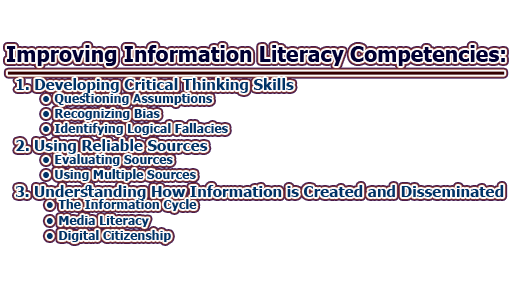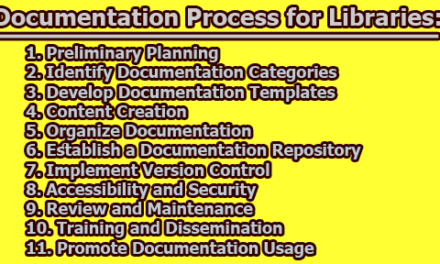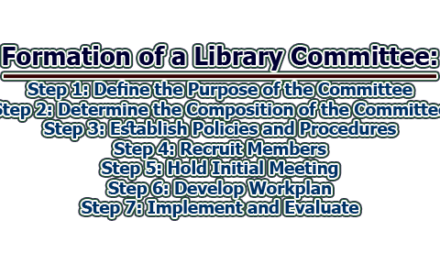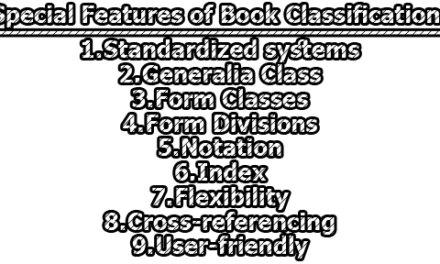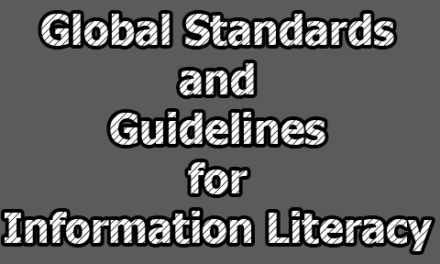Improving Information Literacy Competencies:
Improving information literacy competencies is crucial for individuals, organizations, and society as a whole. With the rise of fake news, misinformation, and propaganda, it is more important than ever to be able to distinguish between credible and unreliable sources of information. This article will explore ways to improve information literacy competencies, including developing critical thinking skills, using reliable sources, and understanding how information is created and disseminated.
- Developing Critical Thinking Skills: Critical thinking is a key component of information literacy. It involves analyzing information, evaluating its reliability and relevance, and using it to make informed decisions. To improve critical thinking skills, individuals need to develop the ability to question assumptions, recognize bias, and identify logical fallacies.
- Questioning Assumptions: Questioning assumptions is an essential part of critical thinking. Individuals need to be able to examine their own beliefs and values and ask themselves why they hold them. They also need to be willing to challenge assumptions made by others and ask for evidence to support their claims. Questioning assumptions is especially important when it comes to information that reinforces our existing beliefs or values. It is easy to accept information that confirms what we already believe, but this can lead to a confirmation bias, where we only seek out information that supports our views and ignore evidence that contradicts them.
- Recognizing Bias: Bias is another important concept in critical thinking. Bias refers to the tendency to favor one perspective or idea over another. Bias can be conscious or unconscious and can be present in individuals, organizations, and the media. To improve information literacy competencies, individuals need to be able to recognize bias and consider how it may affect the information they are evaluating. They should also be aware of their own biases and how they may influence their thinking.
- Identifying Logical Fallacies: Logical fallacies are errors in reasoning that can make information appear more credible than it actually is. Some common logical fallacies include ad hominem attacks, strawman arguments, and appeals to authority. To improve information literacy competencies, individuals need to be able to identify logical fallacies and recognize when they are being used to manipulate or deceive them.
- Using Reliable Sources: Using reliable sources is another critical component of information literacy. With the proliferation of fake news and misinformation, it is more important than ever to be able to distinguish between credible and unreliable sources of information. To improve information literacy competencies, individuals need to be able to identify and use reliable sources of information.
- Evaluating Sources: Evaluating sources is the first step in determining whether the information is reliable. Individuals need to be able to assess the credibility of the author, the publication, and the information itself. Some factors to consider when evaluating sources include:
- Author: Who wrote the information? What is their background and expertise? Do they have a bias or agenda?
- Publication: Where was the information published? Is the publication reputable? Does it have a history of accuracy and reliability?
- Information: Is the information accurate? Is it supported by evidence? Is it up-to-date?
- Using Multiple Sources: Using multiple sources is another important strategy for improving information literacy competencies. By consulting multiple sources, individuals can compare and contrast information, identify discrepancies, and develop a more complete understanding of a topic. Using multiple sources also helps to reduce the risk of relying on inaccurate or biased information.
- Understanding How Information is Created and Disseminated: Understanding how information is created and disseminated is another critical component of information literacy competencies. With the rise of social media and online platforms, information can spread quickly and easily, making it even more important to understand the process by which information is created and disseminated.
- The Information Cycle: The information cycle refers to the process by which information is created, disseminated, and eventually becomes outdated or obsolete. The information cycle typically involves four stages:
- Creation: Information is created through research, writing, or other forms of media production.
- Distribution: Information is distributed through various channels, including print media, online platforms, and social media.
- Access: Individuals access information through various sources, such as libraries, online databases, and search engines.
- Preservation/Obsolescence: Information may be preserved for future use or become outdated and obsolete over time.
Understanding the information cycle is important because it helps individuals to identify the source of information and assess its reliability. For example, information that is outdated or no longer relevant may not be reliable, while information that is current and frequently updated may be more credible.
- Media Literacy: Media literacy is another important aspect of information literacy competencies. Media literacy refers to the ability to access, analyze, evaluate, and create media messages across a variety of platforms. This includes traditional media, such as newspapers and television, as well as new media, such as social media and online platforms.
To improve media literacy skills, individuals need to be able to evaluate media messages for accuracy, bias, and credibility. They should also be able to identify the intended audience and purpose of the message and consider how it may influence their own beliefs and opinions.
- Digital Citizenship: Digital citizenship is another important component of information literacy competencies. Digital citizenship refers to the responsible and ethical use of digital technologies, including online platforms and social media. To be a responsible digital citizen, individuals need to understand their rights and responsibilities online and be able to navigate the digital landscape safely and effectively. Some key aspects of digital citizenship include:
- Understanding online privacy and security: Individuals should be aware of their rights to privacy online and take steps to protect their personal information.
- Respecting intellectual property: Individuals should understand copyright laws and respect the intellectual property of others.
- Engaging in online communication: Individuals should be able to communicate effectively and respectfully online, while also being aware of potential risks and hazards.
From the above discussion, we can say that improving information literacy competencies is vital in today’s digital age. With the rise of fake news, misinformation, and propaganda, it is more important than ever to be able to distinguish between credible and unreliable sources of information. Developing critical thinking skills, using reliable sources, and understanding how information is created and disseminated are all key components of information literacy. By improving these skills, individuals can make informed decisions, engage in productive conversations, and contribute to a more informed and educated society.
References:
- Badke, W. (2017). Information literacy: A conceptual framework for higher education. Journal of Academic Librarianship, 43(3), 375-382.
- Bruce, C. (2017). Information literacy as a catalyst for educational change: A background paper. Education Sciences, 7(2), 44.
- Cooke, N. A. (2018). Fake news and alternative facts: Information literacy in a post-truth era. Reference & User Services Quarterly, 57(3), 153-157.
- Farmer, L. S., & Weckstein, S. (2018). Information literacy: The cornerstone of lifelong learning. College & Research Libraries News, 79(2), 64-67.
- Gross, M., & Latham, D. (2016). Charting a path to collaboration between academic libraries and campus stakeholders to integrate information literacy. Journal of Academic Librarianship, 42(6), 679-685.
- Julien, H., Barker, S., & O’Connor, L. (2017). Embedding information literacy in a first-year engineering design course: An experimental study. Journal of Academic Librarianship, 43(2), 124-133.
- Lloyd, A. (2017). Developing information literacy skills in business students: A case study from Australia. Journal of Business & Finance Librarianship, 22(1), 22-37.
- Wong, L. H. N. (2016). Improving information literacy competencies through course-integrated instruction: A case study of a first-year engineering course. The Journal of Academic Librarianship, 42(6), 740-746.

Library Lecturer at Nurul Amin Degree College

